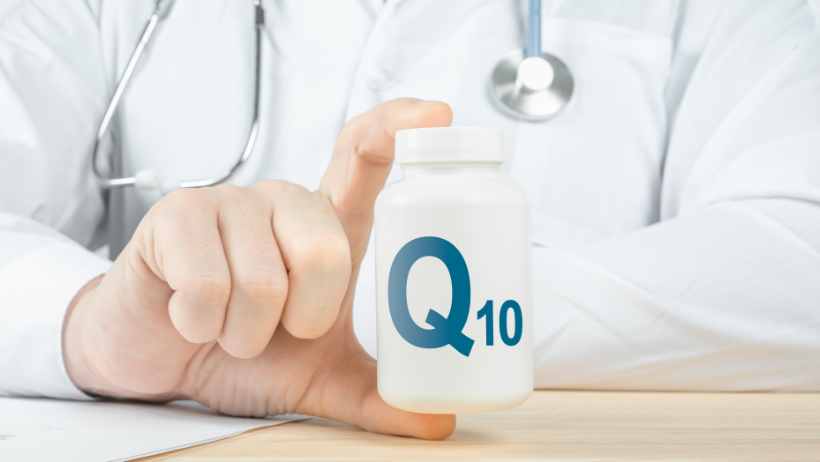
This article examines the prospective cardiovascular benefits of CoQ10 supplements. Coenzyme Q10 (CoQ10) is an antioxidant enzyme that protects cells from injury and is essential for the production of cellular energy.
However, CoQ10 levels in the body can be diminished by specific conditions and medications, necessitating the use of CoQ10 supplements. Existing research indicates that these supplements potentially offer a multitude of advantages, including but not limited to enhancing cardiovascular well-being and alleviating symptoms associated with migraines, fibromyalgia, erectile dysfunction, diabetes, and muscle discomfort caused by statins.
Although CoQ10 can be acquired through dietary sources, supplementation offers a targeted and more convenient alternative. It is crucial to acknowledge that the appropriateness and dosage of CoQ10 supplements may differ contingent upon the underlying condition. Therefore, prior to integrating them into your regimen, it is prudent to seek guidance from a healthcare professional.
Advantages of CoQ10 supplements in relation to cardiovascular health
Lowering the blood pressure
It has been discovered that CoQ10 supplements improve blood pressure levels. Hypertension, an elevated blood pressure, constitutes a significant risk factor for cardiovascular disease, augmenting the probability of encountering myocardial infarction or cerebrovascular accident.
Supplementation with CoQ10 has been shown to potentially lower systolic and diastolic blood pressure, thereby decreasing the overall risk of cardiovascular disease. Although the precise mechanism through which CoQ10 lowers blood pressure remains unknown, it is hypothesized to be associated with the antioxidant attributes of the enzyme, which aid in the prevention of injury to blood vessels.
Symptomatic improvement of heart failure
A condition characterized by the heart’s inability to pump sufficient blood to satisfy the requirements of the body is known as heart failure. Among the possible side effects are fatigue, dyspnea, and fluid retention. There is encouraging evidence that CoQ10 supplements can improve outcomes and symptoms in patients with heart failure.
The enzyme is essential for the synthesis of adenosine triphosphate (ATP), the primary source of energy for myocardial infarction cells. Potential benefits of CoQ10 supplementation for patients with heart failure include enhanced energy production in the heart, which may result in improved cardiac function and alleviation of symptoms.
Increasing capacity for exercise
Consistent physical activity is crucial for the preservation of cardiovascular well-being; however, certain medical conditions may impose restrictions on aerobic capacity. It has been discovered that supplementation with CoQ10 improves the exercise capacity of patients with cardiac disease.
Enhancing the body’s overall energy production through CoQ10 supplementation could potentially enable individuals to engage in exercise for extended durations and at increased intensities. Moreover, CoQ10’s antioxidant characteristics potentially offer a safeguard against oxidative stress and muscle injury induced by exercise, thereby augmenting the capacity for physical activity.
Mitigator of oxidative stress
Oxidative stress manifests when the body’s capacity to neutralize reactive oxygen species (ROS) with antioxidants is insufficient to counterbalance their production. A crucial mechanism underlying the development and progression of numerous diseases, including cardiovascular disease, is oxidative stress.
Antioxidant CoQ10 aids in the neutralization of reactive oxygen species (ROS) and the prevention of oxidative tissue and cell injury. Through its ability to mitigate oxidative stress, CoQ10 potentially safeguards the heart against harm and lowers the susceptibility to cardiovascular ailments.
Mitigating the likelihood of developing cardiovascular disease
The risk of developing cardiac disease may be decreased through CoQ10 supplementation, according to a number of studies. CoQ10’s antioxidant properties serve to safeguard low-density lipoprotein (LDL) cholesterol, a well-documented risk factor for cardiovascular disease, from oxidation.
Through inhibiting the oxidation process of LDL cholesterol, CoQ10 potentially mitigates arterial plaque formation and reduces the likelihood of atherosclerosis development. Furthermore, research has demonstrated that lipid profiles can be improved through CoQ10 supplementation; high-density lipoprotein (HDL) cholesterol levels rise while total cholesterol and triglycerides fall.
Enhancing cardiac performance
CoQ10 is an essential component in the process by which cells generate energy within the mitochondria, which includes cardiac muscle cells. Individuals who have compromised cardiac function may potentially experience an improvement in energy production and overall heart function through the supplementation of CoQ10.
Supplementation with CoQ10 has been shown to enhance the function of the left ventricle, elevate the ejection fraction (a metric used to quantify cardiac output), and diminish indicators of inflammation in individuals afflicted with heart disease. Enhancements in cardiac function have the potential to result in improved cardiovascular health and a decreased likelihood of adverse events.
Enhancing rehabilitation following myocardial infarction
Obstruction of blood supply to the heart results in heart muscle cell damage or mortality, which constitutes a myocardial infarction. Supplemental CoQ10 has been studied as a potential treatment for heart attack-related complications such as accelerated recovery and diminished injury.
Research has demonstrated that CoQ10 has the potential to diminish the extent of the myocardial infarction, enhance the functionality of the left ventricle, and reduce biomarkers associated with inflammation and oxidative stress. Consistent with these results, supplementation with CoQ10 may support recovery from myocardial infarction and long-term prognoses.
Mitigator of inflammation
Chronic inflammation is a prevalent characteristic observed in numerous cardiovascular diseases and has the potential to contribute to their pathogenesis and advancement. The anti-inflammatory properties of CoQ10 have been identified, potentially aiding in the mitigation of inflammation within the body.
CoQ10 may provide protection against endothelial dysfunction, a critical determinant in the progression of atherosclerosis, through its anti-inflammatory effects. Furthermore, it has been demonstrated that supplementation with CoQ10 can reduce the concentrations of pro-inflammatory cytokines and inflammation biomarkers in patients with heart disease.
Enhanced endothelial performance
Endothelial dysfunction pertains to compromised operation of the endothelium, the intravascular lining. A critical nascent phase in the progression of atherosclerosis, it has the potential to induce arterial constriction and calcification. It has been demonstrated that CoQ10 enhances endothelial function through the promotion of nitric oxide synthesis, a molecule that aids in vasodilation and facilitates optimal blood circulation. CoQ10 may aid in the maintenance of blood vessel health and integrity by enhancing endothelial function, thereby decreasing the risk of cardiovascular disease.
Managing diabetic cardiovascular complications
A chronic condition marked by elevated levels of glucose in the blood, diabetes is correlated with an elevated susceptibility to cardiac disease. Supplemental CoQ10 has been studied as a potential therapeutic intervention for the management of cardiovascular complications in diabetic patients.
Research has demonstrated that CoQ10 has the potential to enhance glycemic control, mitigate oxidative stress biomarkers, and improve cardiac function in patients diagnosed with both type 1 and type 2 diabetes. Additionally, CoQ10 may provide protection against diabetic cardiomyopathy, a pathological state distinguished by myocardial dysfunction in those afflicted with diabetes.
CoQ10 supplements have demonstrated encouraging effects on cardiovascular health. Cardiovascular health maintenance may be significantly aided by CoQ10 supplementation, which functions to lower blood pressure, enhance myocardial function, prevent oxidative stress, and manage a variety of heart-related complications.
Prior to beginning CoQ10 supplements, it is critical to seek guidance from a healthcare professional in order to ascertain the optimal dosage and evaluate the possibility of any adverse drug reactions or interactions with other medical conditions or medications.










